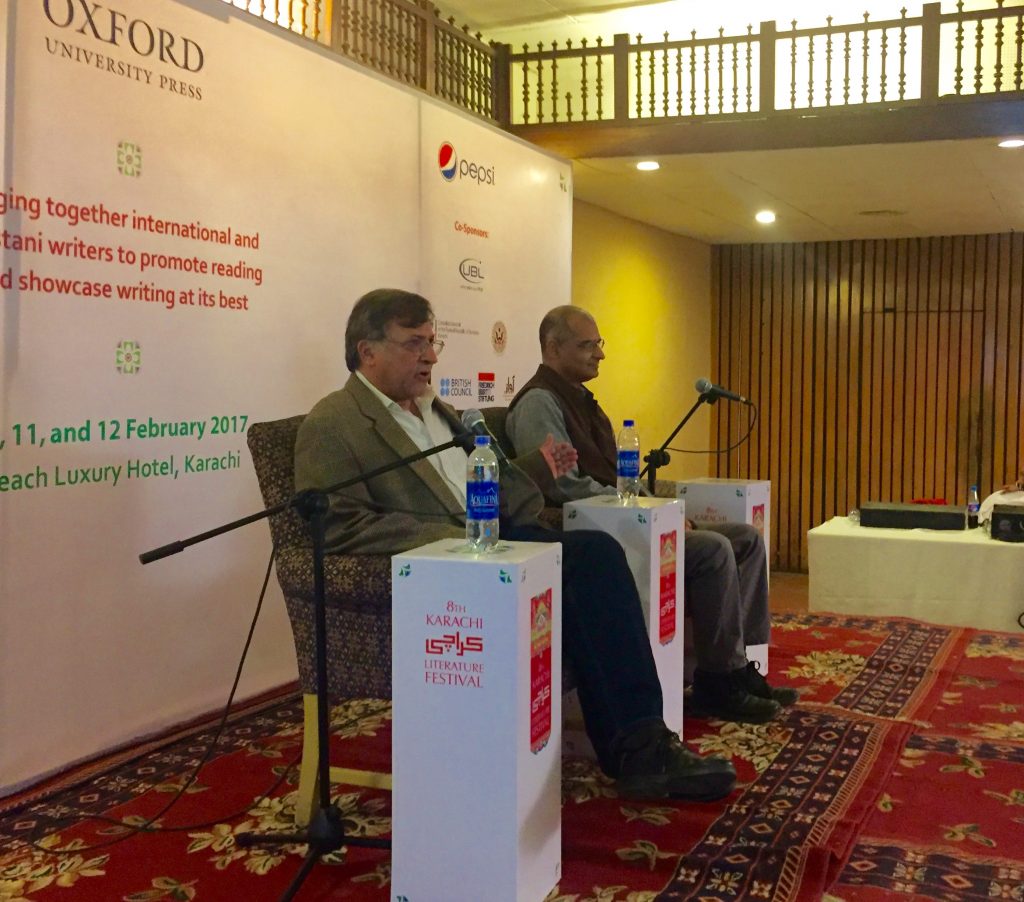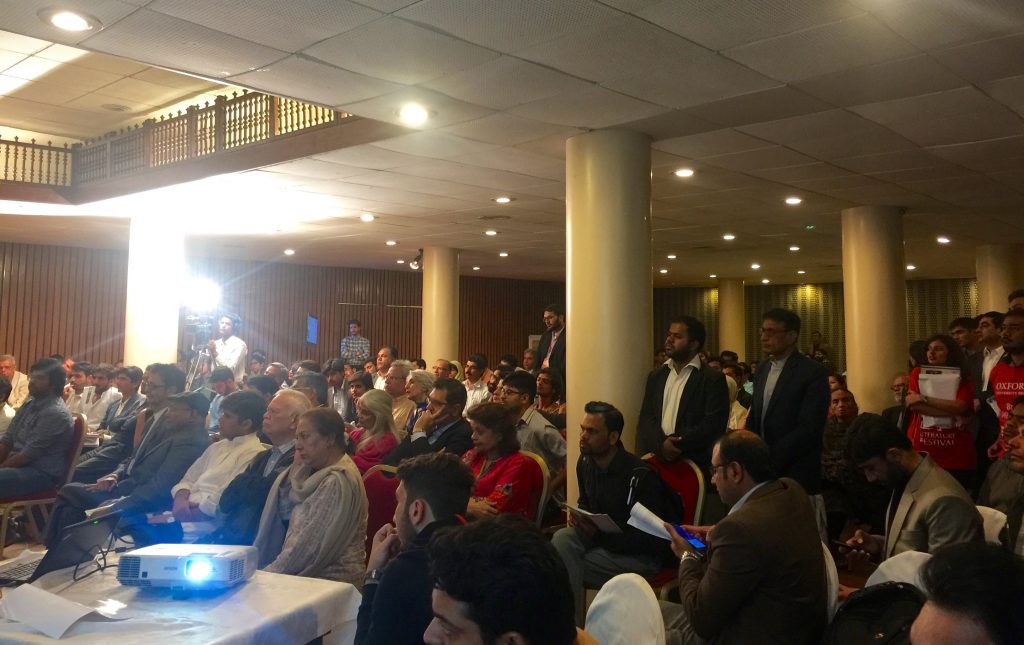A Warming Nuclear Climate
“Pakistan and India are still in the ‘romantic period’ of their relationship with nuclear weapons,” explained Zia Mian, on a moonlit evening of the first day of the Karachi Literature Festival, held along the mangrove-lined coast at Beach Luxury Hotel. “They still think nuclear weapons are high-tech, even though they are a seventy-year-old technology. They still think these weapons are empowering, rather than a great curse,” he continued, during a conversation with Pervez Hoodbhoy, titled ‘Climate Change and Nuclear War’.
According to Mian, a physicist and co-director of the Program on Science and Global Security at Princeton University, the logic being played out between the Indian and Pakistani armed forces is exactly the same as that of the the US and the Soviet Union in the Cold War era. “Every independent analyst that has actually looked at Indian military capability knows that the Indian army does not have what it takes to implement Cold Start,” he continued. But the problem, Mian argues, is that the Pakistan military used the idea of Cold Start to serve its own political interests — to justify its size and nuclear capability.
Hoodbhoy, the well known physicist, drew laughter from a packed house in a room aptly named ‘007’, when he recalled the comments of a teacher in the US who claimed that President Trump’s command over the English language was equivalent to that of an eight-year-old. “With Trump’s finger on the nuclear button, is there scope for a movement of such a magnitude as that which emerged in 1981 during the Reagan administration?” Hoodbhoy asked Mian.
According to Mian, “It is still not clear whether the fear of Trump will be enough to replace the fear of a nuclear war as the motive for a mass movement.” However, the audience was relieved to learn that on the day of the election results in the US, American generals were reportedly studying the American constitution to see the circumstances under which they could disobey President Trump.
Answering a question from the audience as to whether climate change is a bigger problem than terrorism, Hoodbhoy said that although this was not currently the case, it would certainly be true in another ten-to-twenty years. Hoodbhoy attributed this to “a decreasing supply of water, increased pollution, poisoned land and an urban explosion of population.”
Mian added that climate change creates social stress. It will reduce the level of electricity produced by hydroelectric dams, lead to drought and famine — and all this in a society that is already at war with itself. “If you think you have a problem with terrorism now, when climate change is felt fully, it will just multiply all of those problems manifold.”
A tense silence filled the room as the audience listened to this foreboding news of a doomsday scenario — nuclear or climate-related. Just then, the air conditioning was turned up.
The writer is a staffer at Newsline Magazine. His website is at: www.alibhutto.com





